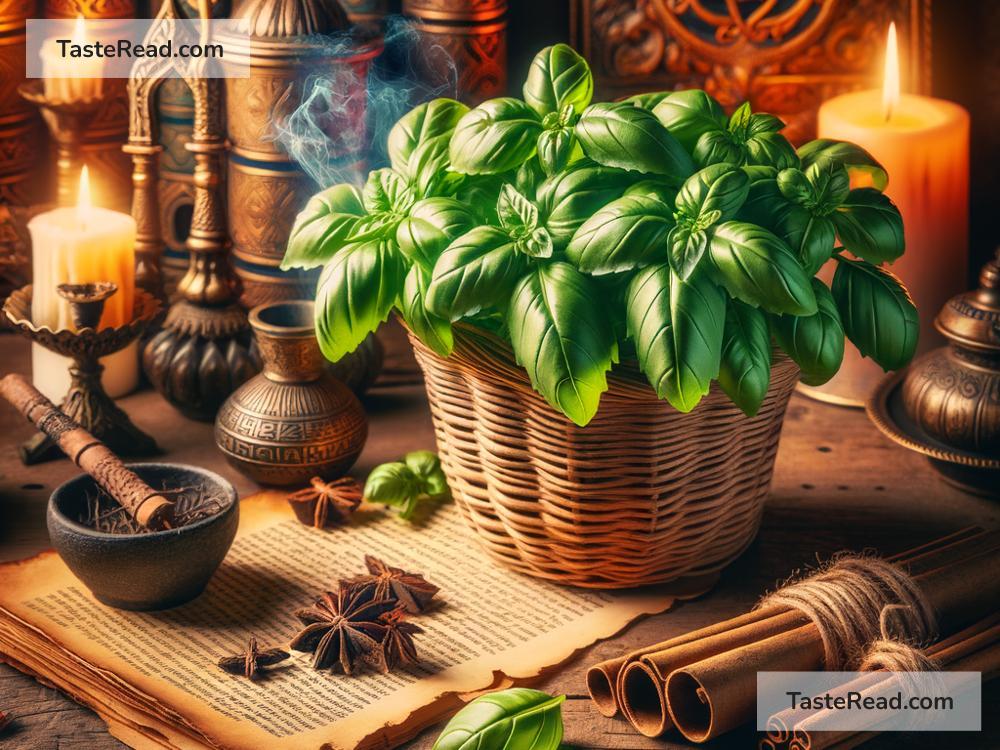The Fascinating History of Basil in Sacred Rituals
Basil, the aromatic herb that we often associate with delicious dishes like pasta and salads, has a rich and fascinating history that goes far beyond the kitchen. For centuries, basil has played an important role in rituals, religion, and spirituality across different cultures. Its vibrant scent, medicinal properties, and symbolic meaning have made it much more than just a cooking ingredient. Let’s explore the fascinating history of basil in sacred rituals, keeping things easy to understand.
The Mystery Behind Basil’s Name
The word “basil” comes from the Greek word “basileus”, which means “king.” This shows that even in ancient times, basil was considered a royal herb, worthy of great respect. Some legends suggest that basil might even have been named because of its connection to holy ceremonies and divine powers. People believed basil had a special role in bridging the human world with the spiritual realm.
Basil in Ancient Civilizations
Ancient Greece and Rome:
In ancient Greece, basil was considered a sacred plant associated with the gods, especially Zeus, the king of the gods. Some people believed basil had the power to bring protection and good fortune, and it was often planted near temples or sacred spaces. It wasn’t just used in religious rituals, though—basil also featured in magical practices. For example, basil was thought to ward off evil spirits and bring blessings to a household.
The Romans had similar beliefs about basil. They considered it a symbol of love and protection. Roman soldiers would often carry basil leaves during their travels because they believed the herb would give them courage and strength. Basil also found itself intertwined with myths and legends, sometimes seen as a plant that could bring great power or even serve as an antidote to harmful energies.
Ancient India:
In India, basil isn’t just a herb—it’s a holy plant. Known as Tulsi, or “holy basil,” it has been revered in Hinduism for thousands of years. Tulsi is considered an earthly manifestation of Lakshmi, the goddess of wealth and prosperity. Hindus plant tulsi near their homes and temples, believing that it brings blessings, peace, and purification to the household.
Tulsi is central to many Hindu rituals. It is often included in daily prayers and religious offerings and is treated with the utmost respect. During sacred ceremonies, tulsi leaves are placed near deities and offered in prayer, as it is believed to connect worshippers with divine energy. Drinking water infused with tulsi or using it to cleanse spaces are other widespread practices.
Ancient Egypt:
The Egyptians also saw basil as more than just a plant. They believed basil had life-affirming and protective qualities. In ancient burial ceremonies, basil was placed in tombs, as it was thought to help guide the souls of the deceased into the afterlife. Its strong scent and symbolic power made it a key plant in rituals meant to honor the dead while ensuring their safe journey.
Basil in Christianity
Basil holds a special place in Christian traditions as well. According to one legend, basil grew around the site where the True Cross of Christ was found by St. Helena, the mother of Emperor Constantine. Because of this, basil became associated with the cross and the idea of renewal and resurrection.
To this day, some Christian ceremonies involve basil, especially among Eastern Orthodox communities. In these traditions, basil is used to prepare holy water. Priests often place basil sprigs in containers of water, sprinkling it on people to bless them.
Basil’s Role in Folk Medicine and Ritual Magic
As basil spread around the world, different cultures began using it in folk medicine and rituals. It became known for its powerful healing properties, believed to cure everything from headaches to stomachaches. But its spiritual significance remained just as strong.
In many cultures, basil was used in ritual magic. People thought it could attract love, wealth, or happiness. If you placed basil leaves under your pillow, it might bring you sweet dreams or even visions of the future. Farmers believed that planting basil could bring good luck to their harvests. Meanwhile, carrying basil in your pocket was thought to ward off negative energies and bad luck.
Basil Today: From Rituals to Everyday Life
Today, basil is beloved worldwide, mostly for its culinary uses. However, its spiritual and sacred roots are still alive and well. Many households use basil to symbolize blessings, health, and peace. Some religious groups continue incorporating basil into their ceremonies, and its connection to rituals remains strong.
Whether it’s tulsi in India or basil for holy water in Christianity, the herb reminds us of our deep cultural ties to nature and spirituality. While we might not always think about basil’s sacred past while sprinkling it over a pizza, it’s beautiful to remember that this humble herb has been considered divine by so many, for so long.
Conclusion
Basil’s history reveals how deeply humans have connected plants with spirituality and sacred rituals. From ancient Greece to India, and even Christianity, basil has been cherished not just for its taste, but also for its ability to symbolize love, protection, renewal, and divine connection. Next time you see basil in your kitchen, remember that this little herb carries centuries of history and meaning in its fragrant leaves.


